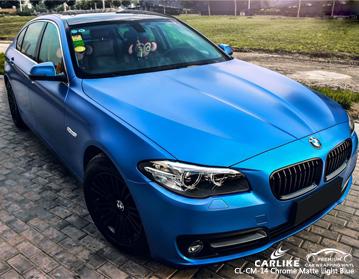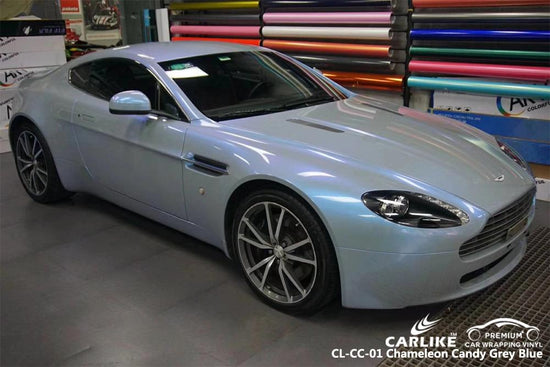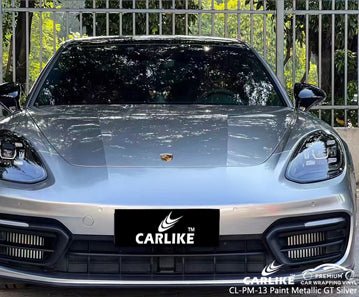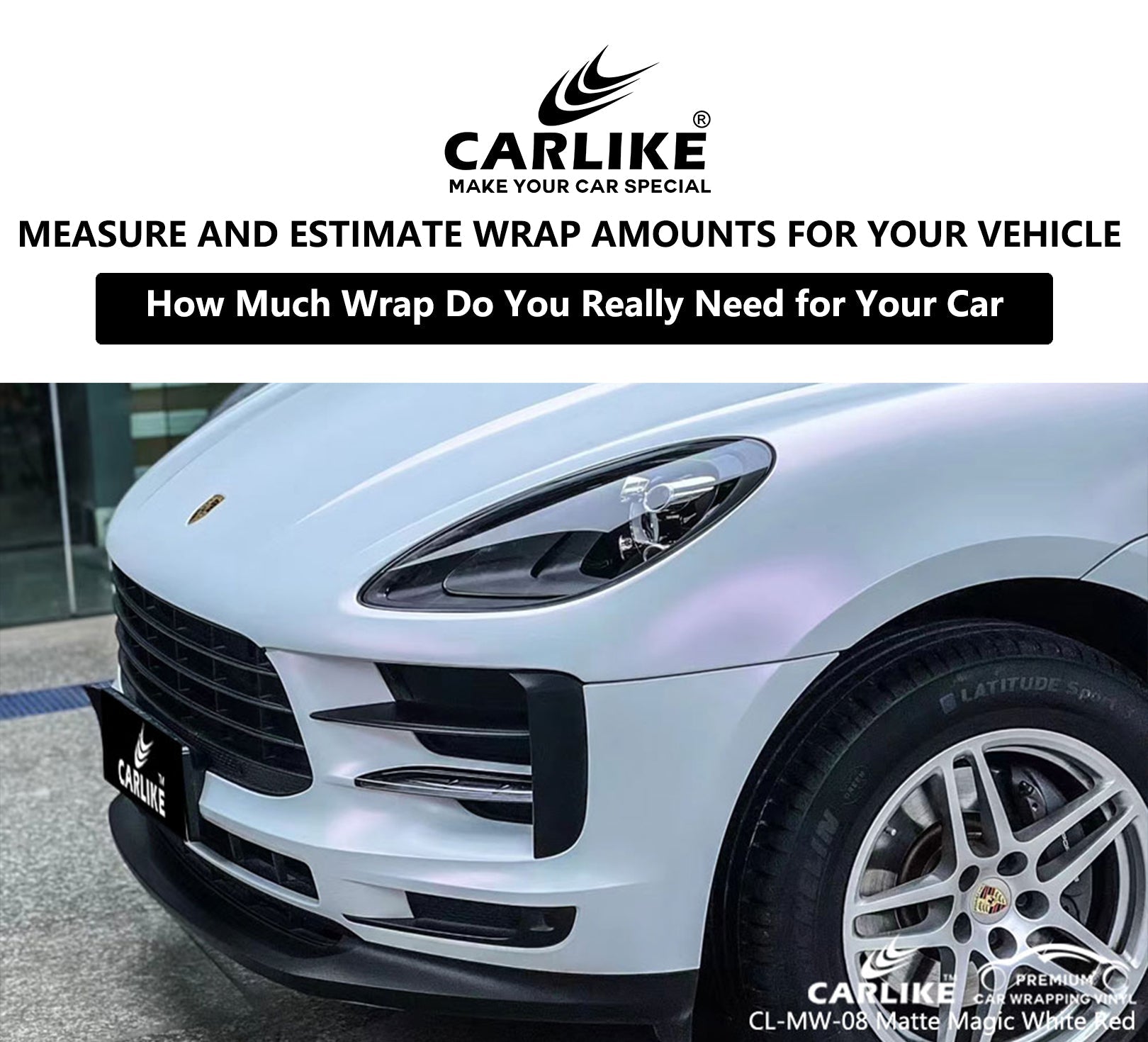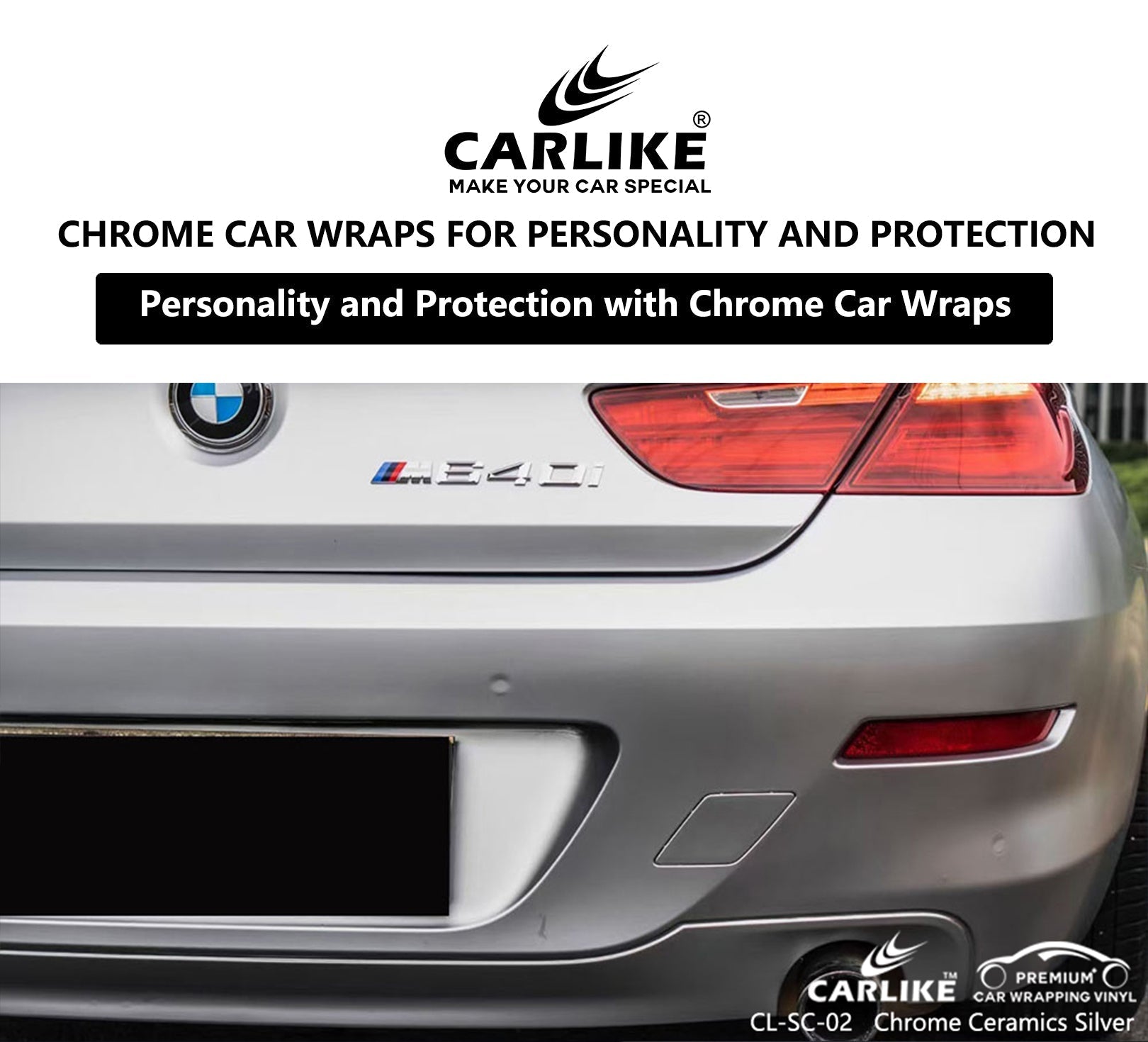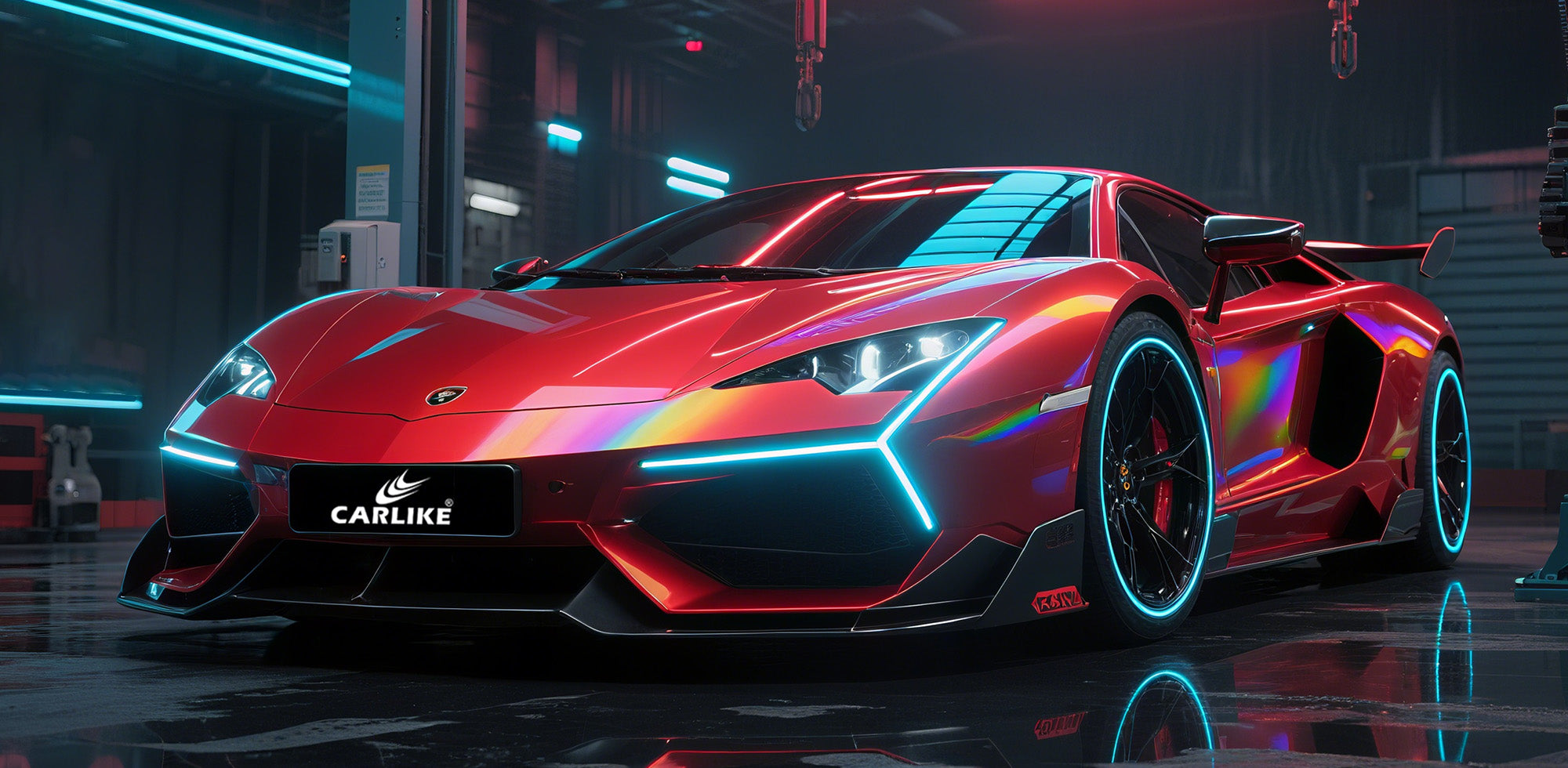The lifespan of car wraps
The longevity of a car wrap can vary based on several factors, but a professionally installed and well-maintained car wrap typically lasts between 5 to 7 years. However, it's important to note that the lifespan of a car wrap depends on various factors including:
1. Quality of Materials: High-quality vinyl materials tend to last longer and maintain their appearance better than lower quality ones. Opting for premium vinyl materials can extend the lifespan of the wrap.
2. Installation: Proper installation is crucial for the longevity of a car wrap. A professionally installed wrap with attention to detail and care is more likely to last longer without issues like peeling, bubbling, or lifting edges.
3. Maintenance: Regular maintenance and proper care can significantly impact the lifespan of a car wrap. This includes washing the wrap regularly with gentle cleaning solutions, avoiding harsh chemicals, and using a soft cloth or sponge to prevent scratches.
4. Environmental Factors: Exposure to extreme weather conditions such as prolonged sunlight, high temperatures, or harsh winters can accelerate the wear and tear of a car wrap. Parking the vehicle indoors or using a garage can help protect the wrap from environmental damage.
5. Usage: The frequency and conditions of use also affect the lifespan of a car wrap. Vehicles that are driven extensively or subjected to rough driving conditions may experience quicker wear and tear on the wrap.

1. Quality of Materials
The quality of materials used in a car wrap significantly impacts its lifespan and overall performance.
1. Durability: High-quality vinyl materials are engineered to be more durable and resistant to wear and tear. They are typically thicker and have better adhesive properties, allowing them to withstand various environmental factors such as sunlight, heat, cold, and moisture without deteriorating quickly.
2. Color Fading: Lower quality vinyl wraps are more prone to color fading when exposed to UV radiation from sunlight. High-quality vinyl wraps often come with UV inhibitors and superior pigments that help maintain color vibrancy for a longer period, reducing the risk of fading.
3. Adhesive Strength: The adhesive used in high-quality wraps is formulated to create a strong bond with the vehicle's surface. This ensures that the wrap stays firmly in place without lifting or peeling, even under challenging conditions such as high speeds or adverse weather.
4. Flexibility and Conformability: Quality vinyl wraps are designed to be highly flexible and conformable, allowing them to adhere seamlessly to the curves and contours of the vehicle's body. This prevents wrinkles, creases, and air bubbles during installation, resulting in a smoother and more professional finish that lasts longer.
In summary, investing in high-quality vinyl materials for a car wrap ensures better durability, color retention, adhesive strength and flexibility. This ultimately contributes to a longer lifespan and superior performance of the wrap, providing better value for the vehicle owner in the long run.

2. Installation
The installation process plays a critical role in determining the lifespan of a car wrap.
1. Proper Adhesion: During installation, ensuring proper adhesion of the vinyl wrap to the vehicle's surface is essential. Any air bubbles, creases, or areas where the vinyl isn't adhered properly can lead to premature failure of the wrap. A professional installer will use techniques such as heat application and squeegeeing to ensure the vinyl adheres smoothly and uniformly to the contours of the vehicle.
2. Edge Sealing: Properly sealing the edges of the wrap is crucial for preventing lifting and peeling over time. Quality installers will carefully trim and seal the edges of the wrap to prevent moisture, dirt, and debris from infiltrating underneath, which can cause the wrap to degrade and detach.
3. Surface Preparation: Thoroughly cleaning and preparing the vehicle's surface before installation is vital for achieving proper adhesion and longevity of the wrap. The surface should be free of dirt, grease, wax, and other contaminants that could hinder the bonding process. Additionally, any existing paint damage or imperfections should be addressed before wrapping to prevent them from worsening over time.
4. Skill and Experience: The skill and experience of the installer are key factors in ensuring a high-quality wrap installation. Experienced installers understand the intricacies of working with vinyl wrap material and know how to troubleshoot potential issues during the installation process. Their expertise can result in a more durable and long-lasting wrap.
5. Quality of Tools and Materials: Professional installers use high-quality tools and materials specifically designed for vinyl wrap installation. This includes application tools, cutting implements, and adhesives. Using inferior tools or materials can compromise the integrity of the wrap and shorten its lifespan.
In summary, proper installation by a skilled professional is essential for maximizing the lifespan of a car wrap. By ensuring proper adhesion, edge sealing, surface preparation, and using quality tools and materials, installers can help ensure that the wrap maintains its appearance and durability for years to come.

3. Maintenance
Maintenance plays a critical role in extending the lifespan of a car wrap.
1. Cleaning: Proper cleaning is essential to remove dirt, grime, and other contaminants that can accumulate on the wrap's surface over time. Regular washing with a mild detergent and water solution helps prevent the buildup of debris that can degrade the wrap's appearance and longevity.
2. Avoiding Harsh Chemicals: Using harsh chemicals or abrasive cleaners can damage the vinyl material of the wrap, leading to discoloration, fading, or even deterioration of the adhesive. It's important to use cleaning products specifically designed for vinyl wraps and avoid substances like bleach or abrasive cleaners.
3. Regular Inspections: Periodically inspecting the wrap for any signs of damage or wear allows for timely repairs or maintenance. Addressing minor issues early can prevent them from worsening and potentially causing more extensive damage to the wrap.
4. Proper Storage: Storing the vehicle in a covered area or garage when not in use helps protect the wrap from prolonged exposure to sunlight, rain, and other weather elements. This can significantly extend the lifespan of the wrap by minimizing the effects of environmental factors.
In summary, regular maintenance practices such as proper cleaning, avoiding harsh chemicals and addressing issues promptly are crucial for preserving the appearance and extending the lifespan of a car wrap. By incorporating these maintenance habits into your routine, you can ensure that your car wrap remains in optimal condition for years to come.

4. Environmental Factors
Environmental factors play a significant role in determining the lifespan of a car wrap.
1. Sunlight (UV Exposure): Prolonged exposure to sunlight can cause the colors of the wrap to fade over time. UV rays can degrade the vinyl material, leading to discoloration, particularly in darker colors. High-quality wraps often have UV inhibitors that help mitigate this effect, but extended exposure to sunlight can still accelerate wear and tear.
2. Temperature Fluctuations: Extreme temperatures, both hot and cold, can impact the adhesive properties of the wrap. In hot climates, the adhesive may soften, increasing the risk of the wrap lifting or peeling, especially along edges and seams. Cold temperatures can make the vinyl material more brittle, increasing the likelihood of cracking or shrinking.
3. Moisture and Humidity: High humidity levels can affect the adhesive bond of the wrap, potentially causing it to weaken or fail prematurely. Moisture can also seep underneath the wrap, leading to bubbling or delamination. Additionally, water can trap dirt and contaminants on the surface of the wrap, accelerating its deterioration.
4. Pollution and Chemical Exposure: Pollutants in the air, such as industrial emissions and vehicle exhaust, can deposit onto the surface of the wrap, causing staining or discoloration. Harsh chemicals, such as those found in certain cleaning products or road treatments, can also damage the vinyl material and compromise its integrity.
5. Abrasive Surfaces: Rough or abrasive surfaces, such as gravel roads or construction sites, can cause physical damage to the wrap. Prolonged exposure to such conditions may result in scratches, tears, or punctures in the vinyl, compromising its protective and aesthetic properties.
To mitigate the impact of environmental factors on the lifespan of a car wrap, it's essential to take proactive measures such as parking the vehicle in shaded areas or garages whenever possible, using protective coatings or sealants, and following recommended maintenance practices to keep the wrap clean and well-maintained. Additionally, selecting high-quality wraps with UV protection and durable adhesives can help enhance their resilience against environmental wear and tear.

5. Usage
The usage of a vehicle can significantly affect the lifespan of a car wrap in several ways:
1. Frequency of Use: The more frequently a vehicle is driven, the higher the wear and tear on the car wrap. Each mile driven increases the exposure of the wrap to environmental factors such as sunlight, dirt, debris, and pollutants, which can gradually degrade the wrap over time.
2. Driving Conditions: Rough driving conditions, such as off-road driving, gravel roads, or heavy city traffic, can put additional stress on the car wrap. Vibrations, impacts from debris, and abrasions from road particles can lead to premature wear and tear, causing the wrap to deteriorate faster.
3. Parking Conditions: Where a vehicle is parked can also affect the lifespan of the car wrap. Parking outdoors exposes the wrap to the elements, including sunlight, rain, snow, and temperature fluctuations, which can accelerate fading, peeling, or cracking of the wrap. Parking in a garage or covered area provides better protection against environmental damage.
4. Exposure to Chemicals: Vehicles used in certain industries or environments may be exposed to chemicals such as oil, gasoline, solvents, or harsh cleaning agents. These chemicals can react with the vinyl material of the car wrap, causing discoloration, staining, or deterioration of the wrap.
In summary, the usage of a vehicle impacts the lifespan of a car wrap by subjecting it to varying degrees of environmental exposure, physical stress, and potential damage. Taking care to minimize exposure to harsh conditions, practicing proper maintenance, and adopting careful driving habits can help extend the lifespan of the car wrap.

FAQ for the lifespan of car wrap vinyl?
Q: How long does a car wrap typically last?
A: A professionally installed and well-maintained car wrap typically lasts between 5 to 7 years.
Q: What factors affect the lifespan of a car wrap?
A: Several factors can influence the lifespan of a car wrap, including the quality of materials, installation, maintenance practices, environmental conditions, and usage patterns.
Q: How does proper installation impact the lifespan of a car wrap?
A: Proper installation is crucial for the longevity of a car wrap. A professionally installed wrap with attention to detail and care is more likely to last longer without issues like peeling, bubbling, or lifting edges.
Q: What maintenance practices can help extend the lifespan of a car wrap?
A: Regular maintenance, such as washing the wrap with gentle cleaning solutions, avoiding harsh chemicals, and using a soft cloth or sponge to prevent scratches, can significantly impact the lifespan of a car wrap.
Q: Is there anything I can do to maximize the lifespan of my car wrap?
A: Yes, taking proper care of the wrap, including regular cleaning, avoiding harsh chemicals, parking in covered areas when possible, and practicing careful driving habits, can help maximize the lifespan of a car wrap.
Final Words
In conclusion, the longevity of a car wrap depends on various factors, including the quality of materials, installation, maintenance practices, environmental conditions, and usage patterns. Typically, a professionally installed and well-maintained car wrap can last between 5 to 7 years. Opting for high-quality vinyl materials, ensuring proper installation, practicing regular maintenance, and minimizing exposure to harsh environmental elements can all help extend the lifespan of a car wrap. By following these guidelines and adopting careful driving habits, car owners can maximize the durability and appearance of their vehicle wraps, ultimately getting the most out of their investment in vehicle customization and protection.



